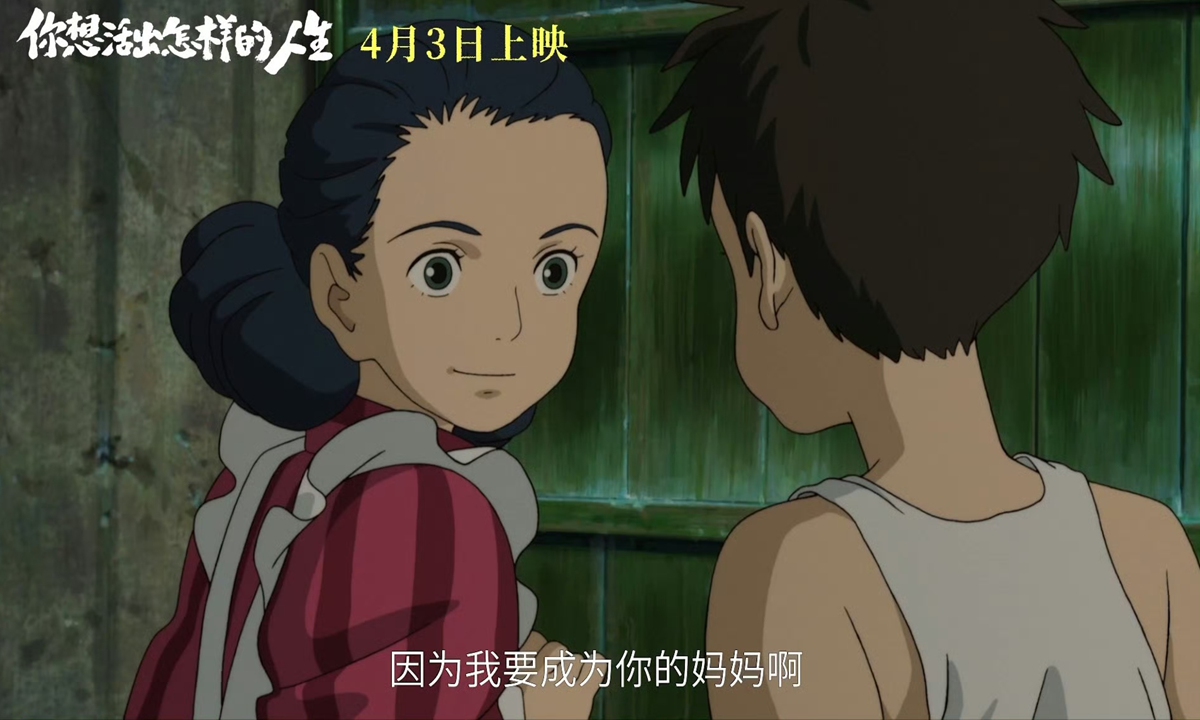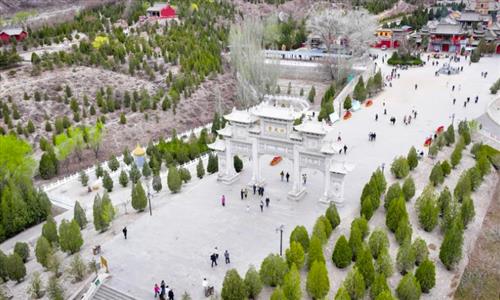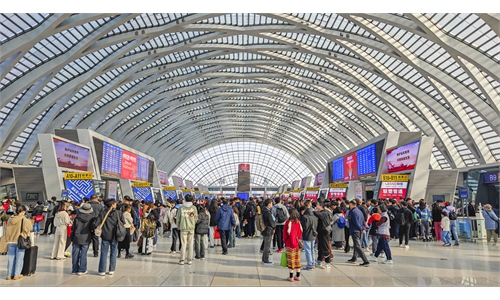ARTS / CULTURE & LEISURE
China’s 3-day Qingming Festival grosses over $116 million at box office
Hayao Miyazaki’s latest work vies for top spot

Promotional material of The Boy and the Heron Photo: Sina Weibo
The box office of China's Qingming Festival holiday (Thursday-Saturday) earned an estimated 823 million yuan ($116 million) as of Saturday, surpassing the results of the previous three holidays. Foreign language films The Boy and the Heron, Godzilla x Kong: The New Empire and Kung Fu Panda 4 took the top three spots, according to Chinese ticketing platform Maoyan.
The year 2024's Qingming Festival film lineup boasted a variety of films, including animated works, mysteries, comedies, and more, with a total of seven new releases. Film analysts told the Global Times that after the bustling Spring Festival film season, several imported foreign language films were giving audiences more options, which is highly beneficial to the healthy operation of the entire film market.
Zhang Tong, a film analyst from Maoyan, told the Global Times that the genre of the Qingming Festival champion varies each year. Despite the abundance of new releases and the continued popularity of older films like Dune 2 and Kung Fu Panda 4, competition remains fierce. This year, the most anticipated contender for the top spot is The Boy and the Heron, the Japanese animated film from the legendary Studio Ghibli.
Yin Tengyu, another film analyst from Maoyan, told the Global Times that Japanese animator Hayao Miyazaki, whose recognition and popularity in China are high, has seen several of his works achieve impressive box-office results in recent years, such as Castle in the Sky (135 million yuan), Spirited Away (488 million yuan) and My Neighbor Totoro (173 million yuan).
Additionally, the film The Boy and the Heron just won the Academy Award for Best Animated Feature, adding further momentum to its box office.
As of Saturday afternoon, The Boy and the Heron had grossed 484 million yuan for the holiday.
Prior to its release in China, the film received widespread acclaim overseas. On March 28, the film held its premiere in Shanghai, marking the only stop where Toshio Suzuki, chairman and producer of Studio Ghibli, personally attended the global promotion.
Suzuki noted he was looking forward to meeting Chinese audiences and fans, stating that many had been moved to tears while watching the film. During the premiere, Suzuki presented a video message from his longtime friend Miyazaki, marking Miyazaki's first promotional appearance for the film.
A lifelong collaborator with Miyazaki for over 40 years and a founding member of Studio Ghibli, Suzuki told the Global Times that it took them seven years to complete The Boy and the Heron. He emphasized their desire not to lecture to teenagers but rather guide them in thinking about the kind of life they want to live.
The Boy and the Heron tells the story of a young boy who loses his mother in a fire and moves into a new home with his father and stepmother. It is replete with Miyazaki's symbols of life, echoing his classic works, and reflects his own childhood experiences projected onto the protagonist, according to Suzuki.
Reflecting on their over 40 years of friendship, Suzuki expressed his sincere commitment to continue walking alongside Miyazaki until one of them passes away. Suzuki also shared anecdotes of his daily interactions with Miyazaki, including late-night phone calls just to say he couldn't sleep, which he found amusing.
This visit also marked Suzuki's first visit to China in 40 years.
Forty years ago, while visiting the Shanghai Animation Film Studio, Suzuki and Miyazaki were impressed by Where is Mama, a Chinese animated film known for its ink painting style and a story that was deeply rooted in Chinese culture.
According to Suzuki, cross-border cooperation is not easy, especially considering cultural differences. He noted that whether it is hand-drawn or CG animation, talented individuals can produce excellent works. Young animators should cultivate their creations based on their familiar cultural backgrounds.
On Chinese social media, many Chinese moviegoers shared their thoughts on Miyazaki's creative journey in making this film. Numerous Chinese netizens expressed their respect for Miyazaki's dedication to animation, calling him a "friendly ambassador for China-Japan cultural exchanges."
"We show full respect for 'Grandpa Hayao Miyazaki' who is still dedicated to film creation in his 80s," one netizen commented.



